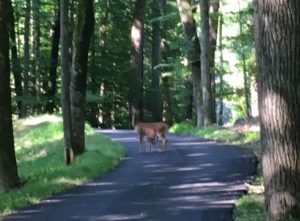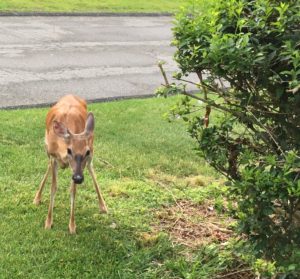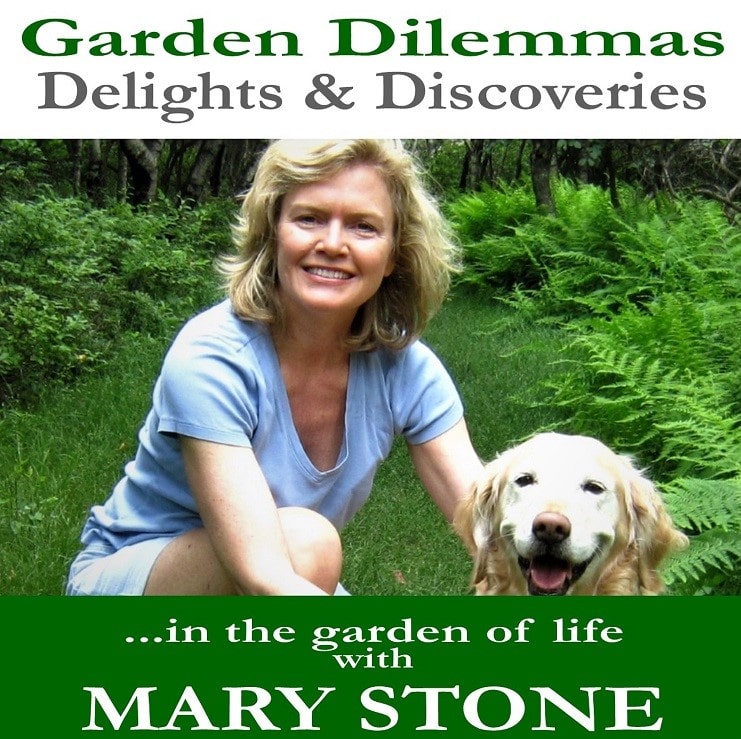As I write I am preparing for a Writer’s Conference in New York City where I will be rubbing shoulders with writers, agents and publishers. I’m dreaming big about bringing our column to others in the form of a book; God willing. Thank you for your five years of support, encouragement and lessons you’ve given by the questions you’ve asked and wisdoms shared. I’ve grown because of you. This isn’t a goodbye. Not at all. In fact, I plan to continue our chats as long as you and The Press invites me to. No matter where the world of publishing and big dreams takes me, I will forever be thankful for our roots shared together.
As I readied for the conference, I stumbled upon one of our early columns that surely is an ongoing garden dilemma. Darn Deer! Still, when I came upon a fawn being nursed by her momma as I did just this week, I stand in awe of the miracle. It’s late for newborns which may go to show how robust the population has grown especially given the last two mild winters. Already deer seem to have kicked into their fall feeding frenzy as evidenced by perennials close to the house being chomped; usually a late September occurrence. Deer can be the most maddening and saddening pest in the garden and the list of what they stay clear of is getting smaller and smaller. There’s no such thing as deer proof, though accent boulders have not been eaten as far as I know. But a garden of all rocks is not beautiful.
Rutgers University has a deer resistant list which is searchable by category of plant material and by degree of resistance from rarely to frequently damaged. While an excellent resource, I find what deer eat varies by neighborhood. Do they pow wow among each other, “Hey have you given Echinacea a try?” Well my deer have. While categorized as seldom severely damaged on the Rutgers list, I’ve had to deer spray the heck out of my Echinacea. Products with coyote urine, pig’s blood, egg solids, edible animal proteins, hot pepper concentrate, and ammonium soaps run the gambit. One manufacturer touts their product’s smell and taste deterrents like this: “the putrescent egg mimics the scent of a dead animal triggering a flight response in deer.” A dead animal smell right outside your door? Deer won’t be the only ones repelled! My favorite deer sprays are those with a clove oil base such as Deer Out and Deer Stopper. Both are made of natural ingredients and are systemic which means they won’t wash off in the rain. Plus, they don’t smell bloody awful. Another trade secret – look around the neighborhood and see what isn’t being browsed and doesn’t smell like a bad septic on a hot day. Garden dilemmas? Askmarystone@gmail.com





Great reading!